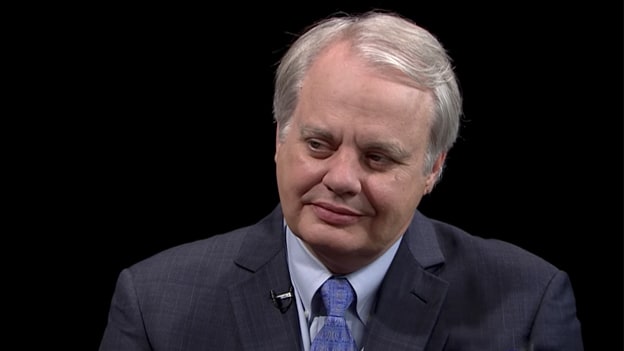Your digital transformation won’t succeed if you have champagne tastes but beer budgets

TechHR Singapore 2019 Read similar articles

All over the world, businesses are surrounded by the hype about technology, digital transformation, and deciding on the right AI/ML/ HR tech technology for their business. While the choice abounds, so does the confusion around how best to use technology in order to win in the war of talent. In the future tech-driven world, what are the new recruiting, engagement and other HR processes going to look like and what tech will power them?
These are some of the questions which Brian Sommer, Founder TechVentive & Technology Industry Expert will answer at the TechHR Singapore 2019 conference. For over 30 years, Brian has been advising the world’s largest firms on strategy, change, process and technology initiatives. Brian assisted over 100 of the Fortune 500 on financial software selections and continues to advise a wide array of high technology firms globally.
At TechHR Singapore, Brian will aim to define the winning strategies in today’s war for talent. He will also throw light on the well-tested HR solutions, helping organizations sort out the hype from reality which helps them stay on the right side of the HR digital divide. In an exclusive interaction with People Matters, Brian shed light on how organizations need to go about in their tryst with technology in order to maximize returns.
Businesses are still struggling in the war for talent. How do you think technology can help with that?
Traditional HR technologies that support traditional recruiting methods will NOT be the answer.
If your HR team must help the company deliver outsized growth (i.e., growth beyond GDP or inflation-rate growth), it will need to radically reimagine the recruiting process and get appropriate technologies for that. Chances are you’ll need big data to prime the process, use candidate relationship marketing capabilities to cultivate relationships with the available candidates out there, chatbots to schedule the interviews, better assessment technologies to help select the right candidates, etc.
What is going to be the impact of digital on the organization of tomorrow? How will it shape business strategy in the coming years?
Technologies like RPA (robotic process automation), workflow automation and chatbots should eliminate a lot of non-value /low-value-added activities in the workplace. It will cause more and more firms to redefine what being a knowledge worker really means and what roles will exist for unskilled workers. But digital technologies will also drive upward the demand for people with skills in algorithms, machine learning, pattern/anomaly detection, big data, natural language processing, and other skills, just to name a few.
What businesses should be discussing is how they’ll create large numbers of these skilled people as existing training programs are woefully inadequate and ill-prepared for the task.
What should be the key factors when deciding on a digital transformation agenda for your organization?
There are four stages a firm must go through to do a truly transformational change well. First, the team must “see” the opportunities before them. They have to learn what the art of the possible is today. Second, they need to “think” about all of the new technologies, business models, etc. out there and what kind of future state they’d like their firm to embrace.
Next, the need to “reconcile” that potential future with the skills, technology and other resources available to their firm. Your transformation won’t succeed, for example, if you have champagne tastes but beer budgets. Finally, you need to “transform” – a step that will require lots of program management, IT, change management and other skills.
How are recruiting, engagement and other HR processes going to look like in the future workplace?
In two words: ‘thinner’ and ‘faster’. Automation will definitely impact HR. Processes will become more automated, timelier and more data (not people) driven. The pace of HR will need to adapt to the ever-quickening pace of technology. The days of taking weeks or months to schedule a candidate for interviews and eventually make them an offer are going the way of the dinosaurs. Employment decisions will need to be made in hours. HR will need to operate at the speed of innovation.
As technology changes the nature of jobs, what do organizations need to focus on to future-proof their talent and stay ahead of the curve in the war for talent?
HR groups, if they haven’t already, have to re-discover training and professional education.
The war for talent can’t be won if you don’t develop a lot of your future talent yourself.
Businesses that think that some other company will train and develop their talent for them are living a fool’s life.
What are the key things the HR function should focus on while deciding on the right AI/ML/ HR tech technology for their business?
Here are just a few of the things that businesses should focus on:
• Do these technologies meet appropriate privacy requirements? Where will the line get crossed when a new tool goes from being helpful to creepy?
• How will these technologies alter work across the organization?
• Do our HR and IT groups have the social science, math, quant, etc. skills to use these technologies correctly?
• Are the new technologies opaque or transparent? Can we adjust the algorithms or must the software provider do so?
• Should your firm get sued for using a hiring algorithm, can you defend the logic of the algorithm in court?
Additionally, firms must determine which of these technologies they’ll implement first and why. Businesses need a plan to select and implement these new tools as they’ll likely not get much in the way of new headcount or budget for them.
Can AI always be expected to result in bias-free hiring? What should leaders keep in mind while incorporating AI in their hiring strategy?
AI, more correctly machine learning will produce results similar to patterns it has observed in prior datasets. For example, if a particular combination of demographic and psychographic factors were present in prior successful hires, the ML will continue to recommend these. Unfortunately, if your firm didn’t hire large groups of other workers previously (e.g., too few women, older workers, recent grads from second-tier schools, etc.), then those groups may be under-represented in the prior data. The ML tools will not find patterns in those older, statistically insignificant data sets. As a result, your firm won’t hire the people it should.
Some new tools are proactively stripping out gender, age and other clues from people’s resumes and job applications. These can go a long way to remove some of the bias in the initial stages of recruiting. These should be in use at every company today.
Brian Sommer will be speaking at TechHR Singapore on 28th February 2019 at Marina Bay Sands, Singapore. Register now.
Image source: Firing Line







